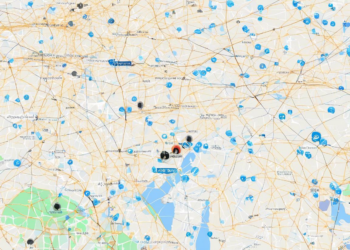Latest Offers from Internet Providers Near Me

Looking for the best internet deals in your area? You’re not alone! With so many internet providers and plans available, it can be tough to know where to start. This comprehensive guide will help you navigate the world of internet offers and find the perfect plan for your needs and budget.
Understanding Your Needs: Speed, Data, and Budget
Before diving into specific deals, it’s crucial to understand your internet needs. Ask yourself:
- What activities will you primarily use the internet for? Streaming, gaming, video calls, or simply browsing the web?
- How many devices will be connected to your internet simultaneously? The more devices you have, the higher speed you’ll need.
- What’s your budget? Internet plans can range significantly in price, so it’s important to set a realistic budget before you start shopping.
Types of Internet Connections: Fiber, Cable, DSL, and Satellite
Knowing the different types of internet connections available is vital to finding the best offer for your location.
- Fiber optic: The fastest and most reliable internet connection, offering high speeds and low latency.
- Cable: Typically faster than DSL, but can be prone to slowdowns during peak hours.
- DSL: A slower connection that uses existing phone lines, suitable for basic internet needs.
- Satellite: An option for rural areas with limited access to other types of internet, but can have high latency and potential for service interruptions.
Popular Internet Providers and Their Offers
Now that you have a better understanding of your needs and the available connection types, let’s explore some popular internet providers and their current offers.
1. Comcast Xfinity:
Comcast Xfinity is a leading cable internet provider with a wide range of plans and services. They offer various internet speeds, bundles with TV and phone, and promotional deals for new customers. [Link to Comcast Xfinity website]
2. Spectrum:
Spectrum is another major cable internet provider known for its competitive pricing and reliable service. They offer plans with varying speeds and data caps, along with bundles that include TV and phone. [Link to Spectrum website]
3. AT&T:
AT&T provides a variety of internet services, including fiber, DSL, and wireless internet. They offer plans with different speeds and data limits, often including promotional offers for new customers. [Link to AT&T website]
4. Verizon Fios:
Verizon Fios is a popular fiber internet provider known for its high speeds and reliable performance. They offer various internet plans with unlimited data and bundles with TV and phone services. [Link to Verizon Fios website]
5. CenturyLink:
CenturyLink provides internet services via DSL, fiber, and fixed wireless. They offer a range of plans with varying speeds and data limits, including promotional deals for new customers. [Link to CenturyLink website]
6. T-Mobile Home Internet:
T-Mobile has expanded into the home internet market with its 5G-powered service. This option is particularly attractive for customers with limited access to traditional internet providers. [Link to T-Mobile Home Internet website]
Finding the Best Deal for You: Compare and Contrast
Once you’ve identified a few providers in your area, it’s time to compare and contrast their offerings. Consider factors like:
- Internet speed: Choose a speed that aligns with your usage needs.
- Data limits: Make sure the data allowance is sufficient for your browsing and streaming habits.
- Price: Compare the monthly cost of different plans and consider promotional deals offered to new customers.
- Equipment fees: Check for any additional fees associated with modem and router rentals.
- Contract terms: Be aware of any contract lengths and early termination fees.
- Customer service: Read online reviews and compare customer satisfaction ratings.
Tips for Getting the Best Internet Deal
Here are some additional tips to help you snag the best internet deal:
- Negotiate: Don’t be afraid to haggle with providers. You can often negotiate a lower price or additional perks.
- Bundle services: If you need TV or phone service, bundling your internet with these services can often save you money.
- Look for promotional offers: Many providers offer limited-time deals for new customers. Keep an eye out for these offers.
- Check for government assistance programs: Some government programs offer discounts on internet service for low-income families.
Using Comparison Websites
Using online comparison websites can streamline your search and save you time. These websites allow you to enter your address and compare offers from various internet providers in your area.
Here are a few popular comparison websites:
- HighSpeedInternet.com: [Link to website]
- BestBuy.com: [Link to website]
- Google Fiber: [Link to website]
Understand Contract Terms and Fees
Before signing up for any internet plan, carefully review the contract terms and associated fees. Pay close attention to:
- Contract length: How long are you committed to the plan?
- Early termination fees: What are the penalties for canceling your service before the contract ends?
- Equipment fees: Are there monthly fees for modem and router rentals?
- Data overage fees: What are the penalties for exceeding your data limit?
Understanding Internet Speed
- Mbps (Megabits per second): A common unit of measurement for internet speed, representing the download speed.
- Latency: The delay in data transmission, often measured in milliseconds (ms). Lower latency is crucial for activities like gaming and video conferencing.
- Upload speed: The speed at which you can upload data, which is often lower than download speed.
Factors Influencing Internet Speed
Several factors can affect your internet speed, including:
- Your location: Your distance from the internet provider’s infrastructure can impact speed.
- Number of devices: The more devices connected to your network, the slower the speeds can be.
- Network congestion: Peak hours can lead to slower speeds due to high demand.
- Internet provider: The quality of your internet provider’s infrastructure and network management can significantly impact speed.
Troubleshooting Slow Internet Speeds
Experiencing slow internet speeds? Try these troubleshooting tips:
- Restart your modem and router: This can often resolve minor connection issues.
- Run a speed test: Use an online speed test to assess your actual internet speed.
- Check for network congestion: Avoid using the internet during peak hours when traffic is high.
- Update your network drivers: Outdated drivers can cause connection problems.
- Contact your internet provider: If you’ve tried all the above steps and are still experiencing slow speeds, contact your provider for support.
Conclusion
Finding the best internet offer near you requires careful planning and research. Consider your needs, compare different providers and their plans, and take advantage of promotional deals. Remember to review contract terms and fees before signing up.
By following these tips, you can navigate the internet provider market and find the perfect plan for your home and budget.












